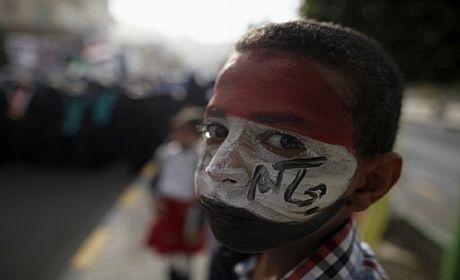Yemen Moves Past Days of Repetition

Following the resignation of Ali Abdullah Saleh in late 2011, Yemen began the first stage of its transitional period with the presidency of Abd Rabbuh Mansur Hadi, Saleh’s deputy. But since there was no serious determination for the structural development that people expected in the political and economic fields, the collection of this year's events were also overshadowed by the challenges created by the continuation of anti-government protests. In 2012, despite the changes made in the political and military officials of the thirty years of Ali Abdullah Saleh’s rule, political interactions with popular parties and groups continued just as before. Among the opposition parties and groups, this created the feeling that the two years of transition were designed not to achieve more desirable conditions but rather to move past the stage of popular uprisings and stabilize Yemen's political regime. This feeling was close to the reality, for what began as the two year transition period in Yemen was, in fact, another part of the Persian Gulf Cooperation Council’s plan to prevent the collapse of the Yemeni regime and direct the developments of this country towards alignment with the interests of the member countries (particularly a country like Saudi Arabia which, in case of the establishment of a democratic regime in Yemen, would be hurt the most).
Nevertheless, based on the conditions of the transition period, and within the framework of a coalition called the “Common Forum”, Yemen’s political parties have started new cooperation with Yemen’s political regime led by President Abd Rabbuh Mansur Hadi; but the opposition parties and groups (including the revolutionary youths, the southern parties and the al-Houthi Shiite group) are still left outside of the power circle and not only were they not allowed to participate in the administration of the country but they also did not see any clear and hopeful horizon regarding changes in the dictatorial methods of the Yemeni government. Thus, in 2012, the people of Yemen continued their anti-government protests and despite the severe ongoing economic problems (especially with food shortages that exert pressure on the people), they insisted on the necessity to achieve the goals of the revolution (the popular uprisings which began in 2010). Of course, a major part of the Yemeni protests in 2012 was aimed at the overt and covert intervention of foreigners in this country. Their opposition to the continuation of the Persian Gulf Cooperation Council plan (to stabilize Yemen’s political regime) and their strong protest against the US and Britain’s intervention in this country were considered as their major points of these protests.
At the same time, the increasing power of radical and Salafi groups in Yemen, especially in the southern regions, were issues of concern for the people in 2012. The US used this excuse to increase the number of its unmanned planes flying over the southern parts of this country and to occasionally attack this region, hence, leading to more concerns for the people. Furthermore, the fact that some of the relatives and appointees of Ali Abdullah Saleh remained in power in the political structure and their control over Yemen’s economic lifelines were also matters of concern for the Yemeni people. This was while attempts were made to support the Yemeni regime led by Abd Rabbuh Mansur Hadi from beyond Yemen’s borders, the most important of which were the three so-called Friends of Yemen meetings held in Riyadh, New York, and London.
Among the more significant news coming out of Yemen during the early days of 2013 were the meetings held as part of the National Dialogue. Of course, based on the plan of the Persian Gulf Cooperation Council, this meeting was supposed to take place during the first months of the two year transition period, but due to the government's non-fulfillment of its obligations with regard to the opposing parties, these meetings were postponed to March. The major opposition parties boycotted this meeting because their requested principles were not observed in the agenda of these dialogues.
In conclusion, the collection of events in Yemen in 2012 indicated the failure of policies which were aimed at stopping the revolution (popular uprisings) and which attempted to make superficial reforms instead of the profound developments the people expected.

